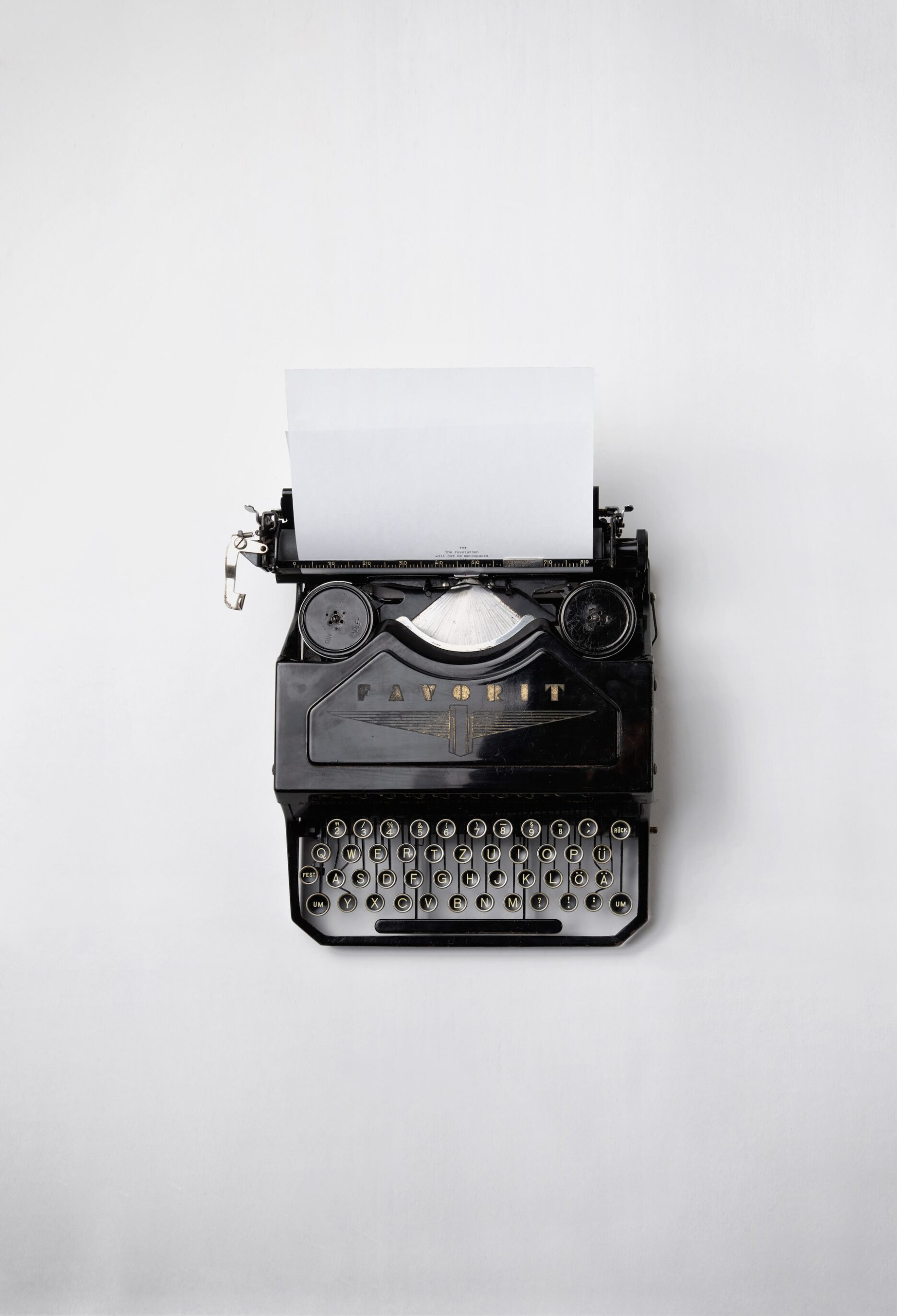featured image: Photo by Florian Klauer on Unsplash
Works Cited
Brenon, Herbert. “The Great Gatsby Movie Trailer from 1926.” YouTube, uploaded by HypedFor, 27 May 2012, https://www.youtube.com/watch?v=c_3bob4nPdM.
[YouTube Video] This trailer is the only remaining evidence of the 1926 adaptation. The movie was not liked by Fitzgerald and was the only one to come out during Fitzgerald’s lifetime. The trailer seems to depict some of the most important scenes in the book and it appears the film matches pretty closely to the book. There’s not a whole lot of information to glean from the trailer itself but the Wikipedia article for the film has a lot more information regarding it. I will write about this film adaptation purely due to the fact it is the first adaptation but due to limited information and not being able to view the whole film I do not know how much I will include in my paper about it. The film is still important in analyzing the relationship between film adaptations and books.
Cunningham, Frank R. “F. Scott Fitzgerald and The Problem of Film Adaptation.” Literature/Film Quarterly, vol. 28, no. 3, 2000, pp. 187–96. JSTOR, http://www.jstor.org/stable/43796987. Accessed 8 Nov. 2023.
[Article] Cunningham talks about F. Scott Fitzgerald and his experience in Hollywood as a screenwriter and how that affects Fitzgerald’s idea of Hollywood. Cunningham then segues into talking about film adaptations of Fitzgerald’s works. He gives a very good analysis of The Last Tycoon directed by Elia Kazan and finally talks about The Great Gatsby directed by Jack Clayton. He offers a lot of insight about what he believes the film adaptation shows about the book. He talks about scenes where the camerawork has been done just right to give a certain effect that the audience would normally feel while reading. Cunningham does not seem to be too critical of Clayton’s adaptation as he thoroughly engages with the way that Clayton directed the film. This article will mostly benefit in talking about the differences that film adaptations have from the books they are based on. Cunningham talks about camerawork as something that helps elevate the adaptation and portray similar things that the book does so that will help to talk about adaptations.
Cutchins, Dennis. “Adaptations in the Classroom: Using Film to ‘Read’ ‘The Great Gatsby.’” Literature/Film Quarterly, vol. 31, no. 4, 2003, pp. 295–303. JSTOR, http://www.jstor.org/stable/43797138. Accessed 8 Nov. 2023.
[Article] Cutchins brings up various points about the merit of having students watch film adaptations of books. In his eyes, film adaptations actually enhance students’ ability to analyze literature as they appreciate the book more. Films are limited in their ability to reproduce the books they are based on. Cutchins brings up recent film adaptations of The Great Gatsby such as the 1974 and 2000 versions. His main criticism of both is the portrayal of Daisy for the audience. In the 1974 film, Daisy is revealed as a rotten character too early. In the 2000 film, Daisy is almost never revealed as a rotten character. Cutchins then goes on to say that this article was not written to convince people to prioritize literature over film but to say that film adaptations offer good avenues for analysis of literature. The article brings up important points about film adaptations and their portrayals of books. This will elevate my argument as the article directly discusses The Great Gatsby.
Hanich, Julian. “Great Expectations: Cinematic Adaptations and the Reader’s Disappointment.” New Literary History, vol. 49 no. 3, 2018, p. 425-446. Project MUSE, https://doi.org/10.1353/nlh.2018.0027.
[Article] Hanich explores the psychology behind why readers are often disappointed by film adaptations of books. He finds that readers often attribute some possessiveness over the book after reading it that affect how they respond to the film. Readers conceptualize in their own imaginations a certain interpretation of the book that they want to see realized by the filmmakers. Often though, the reader will be disappointed because the filmmaker does not have the same conceptualization as them. Hanich also explores the idea of “mineness” that the reader takes on with the book rather than the film as the book feels closer to the reader than the film. The book is a more individualized experience for the reader whereas the film is a joint experiences with others. Hanich mentions that the article is not written to convince people that books are better than film adaptations. Hanich emphasizes the sensual experience of the book and if this feeling makes the reader attached to the book and more likely to experience disappointment. This article analyzes the actual psychology behind people’s attachment to books and why they believe books are better than film adaptations. I will use this article to discuss why books might be better than film adaptations.
James, Caryn. “CRITIC’S NOTEBOOK; The Endless Infatuation With Getting ‘Gatsby’ Right.” The New York Times, 12 January 2001, www.nytimes.com/2001/01/12/movies/critic-s-notebook-the-endless-infatuation-with-getting-gatsby-right.html. Accessed 12 December 2023.
[Web Page] There have been multiple adaptations of The Great Gatsby. The most recent was the 2000 one on A&E. This adaptation was not very good. There were issues with acting and the overall delivery of the plotline. The film was too literal.
Mellow, James R. Invented lives: F. Scott and Zelda Fitzgerald. Houghton Mifflin, 1984.
[Book] I found this on the Wikipedia page for the 1926 film adaptation as it is the source for Zelda Fitzgerald’s thoughts on this film adaptation. I did not read any other parts of it as I wanted to use only what was relevant to what I needed in my paper regarding film adaptations. The section about the film adaptation also talks about the Fitzgeralds’ time in Hollywood.
The Great Gatsby. Directed by Baz Luhrmann, Warner Bros Pictures, 2013.
[Film] Luhrmann made a very good film but perhaps not necessarily the best film adaptation. He takes creative liberty to change certain scenes and characters’ roles in the film. Luhrmann focuses more on making the film good rather than staying completely faithful to the book.
The Great Gatsby. Directed by Jack Clayton, Paramount Pictures, 1974.
[Film] Clayton made a decent film adaptation of The Great Gatsby but did not do everything perfectly. He seemed to try his best to communicate certain aspects of the book through camerawork to conjure up the same emotions that the book does. Clayton seems to have read the book as it included all of the most relevant scenes but still left a couple of things to be desired from it. The performances by the actors were not incredible but the message of the film still came across. The performance by Mia Farrow as Daisy was not as stellar as it could have been. This will be discussed in my paper as I evaluate the actual film adaptations. The camerawork was not horrible but some scenes could have been improved upon. The casting for the characters was also a little bit disappointing.
Trakin, Roy. “From Flappers to Rappers: ‘The Great Gatsby’ Music Supervisor Breaks Down the Film’s Soundtrack.” The Hollywood Reporter, 11 May 2013, www.hollywoodreporter.com/movies/movie-news/great-gatsby-soundtrack-track-by-track-521092/. Accessed 10 December 2023.
[Web Page] This article discusses the relation of each song to the scene it was set in. The executive producer for the music was interviewed to give the explanations. The music seems to be made contemporary because Fitzgerald was using jazz music and it was the current adventurous music at the time.
Tredell, Nicolas. Fitzgerald’s The Great Gatsby: Reader’s Guide. Continuum, 2007. pdf.
[PDF of Book] I also used the Wikipedia page for the 1926 adaptation to find this source. This recounted all the differences in the 1926 adaptation and the book. I am not sure where Tredell got his sources as it is not clearly cited in his book but it is the only source on record for the 1926 adaptation besides the trailer. He mentions very helpful information that will prove useful in a fidelity argument. Brenon appeared to change a good deal of things. However, no changes seemed to take away from Fitzgerald’s overall plotline.
Works Consulted
Gross, Rebecca. “And All That Jazz: Composing the Score for “The Great Gatsby”.” National Endowment for the Arts, 24 April 2015, www.arts.gov/stories/blog/2015/and-all-jazz-composing-score-great-gatsby. Accessed 13 December 2023.
[Web Page] The score was worked on in tandem with the contemporary soundtrack producers. The score had many jazz influences. The period definitely influenced the film as well. This was not the composer’s first time working with Luhrmann.
Jackson, Jeffrey E. “Apples to Apples: A Book-History Approach to Film Adaptations in the Classroom.” CEA Critic, vol. 77, no. 3, 2015, pp. 295–99. JSTOR, https://www.jstor.org/stable/26574782. Accessed 9 Nov. 2023.
[Article] Jackson proposes that film adaptations of books can actually uplift the books. He even goes so far as to say that film adaptations and books are mutually uplifting for each other. He uses examples from Oliver Twist and Wuthering Heights to describe how the directors of the films actually seem to suggest that words and language are restrictive in their ability to portray certain scenes very well. He says that they suggest words are coffins. If this is true, then the films heavily rely on the fact that they can visually portray the essence of the scenes rather than use dialogue to describe the same scene. He almost seems to say that a scene playing out visually is just as effective as language is in getting across a certain feeling or emotion to the audience. This article establishes that books and film adaptations are actually pretty equal in their representation. I will discuss this in my paper to show that perhaps one is not better than the other.




